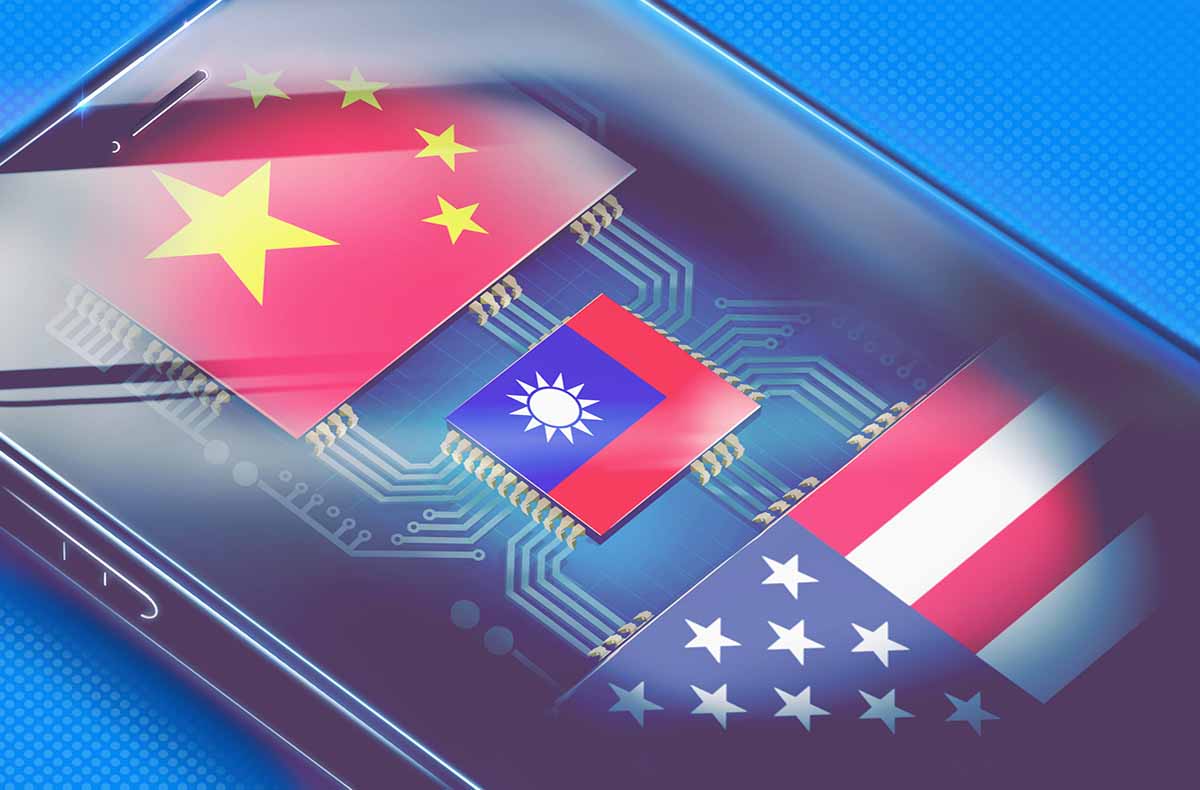
The conflict between China and Taiwan is one of the most long-standing and complex disputes in the world. The roots of the standoff can be traced back to the Chinese Civil War, when the ruling Kuomintang Party (KMT) was defeated by the Communist Party of China (CPC). The KMT retreated to Taiwan and established a government in exile, while the CPC declared the formation of the People’s Republic of China.
The political and ideological differences between the CPC and the KMT have never been reconciled, causing ongoing tensions between the two sides.
China claims Taiwan as a province and has made repeated attempts to assert its authority over the island. This intimidation has raised concerns about a potential invasion, with China isolating Taiwan diplomatically. Only a handful of nations officially recognize it as independent.
The South China Sea
In recent years, China has been increasing its military presence in the South China Sea, almost surrounding Taiwan by building artificial islands and militarizing the area. This has put China at odds with its neighbors and raised concerns about its territorial ambitions.
China’s naval and air patrols in the South China Sea have also increased, with warships and fighter jets regularly crossing into Taiwan’s airspace and territorial waters. This has led to several close encounters and near-miss incidents and increased the risk of a military confrontation between the two sides.
China’s aggression in the South China Sea has far-reaching implications for regional stability and security. The U.S., which is a treaty ally of Taiwan, has pledged to support the island nation’s defense, leading to increased tension between America and China. The problem is that China does not seem to care. Its desire to assert its dominance and expand its influence in the region trumps the interests of the global economy and international law.
The Microchip Power Struggle
The microchip war is where this struggle for power and dominance heats up. The microchip industry is one of the most critical sectors in the global economy, providing essential components for everything from smartphones and laptops to cars and medical devices. Taiwan has long been a dominant player in the industry, with its leading semiconductor business, Taiwan Semiconductor Manufacturing Company, accounting for more than 50% of the global foundry market share.
China has also been investing in its own semiconductor industry with the goal of becoming self-sufficient in the production of advanced microchips. The Chinese government has provided substantial funding to support the development of its domestic semiconductor production, aiming to create a homegrown industry that can rival Taiwan.
Here’s where it gets interesting. China’s strategy goes beyond dominating the semiconductor industry as a means of trumping Taiwan in another facet of their long-standing conflict. Beijing is intimidated by Taiwan’s cozy relationship with the U.S. government and its multinational companies. Chinese companies are keen to lure away top talent. It is aggressively acquiring key companies through mergers and acquisitions, with the aim of acquiring advanced technology and expertise.
The Chinese government’s ambition to dominate the microchip industry has raised concerns about national security and intellectual property theft. Its pursuit of mergers and acquisitions has led to fears that Chinese companies could acquire sensitive technology and intellectual property, potentially compromising U.S. national security and posing a threat to the global economy, especially as the American military relies so heavily on Taiwanese-made microchips.
Successive U.S. governments have recognized the nexus between semiconductors and national security. President Reagan articulated the need to retain American global leadership in chips to counter the Soviet bloc’s numerically superior military forces through “smart” semiconductor systems.
Washington has taken steps to counter China’s ambitions in the microchip industry by imposing restrictions on technology exports and investment in Chinese companies. The U.S. has also encouraged Taiwan to maintain its technological edge in the industry, offering support and incentives to ensure that Taipei remains the dominant player in the sector.
China’s lagging technological position in microelectronics and its global dependence on semiconductor production facilities for leading-edge chips, combined with Taiwan’s close alignment with America, is a significant strategic vulnerability. Global political and economic risks are often mentioned in this context. However, it’s also worth remembering the geographical risks involved, with natural disasters having the potential for the immediate shutdown of Taiwan’s semiconductor production.
A Bright Future?
Despite the ongoing conflict, there have been some attempts at dialogue between China and Taiwan. In 2015, the leaders of the two nations met for the first time since the civil war, which was seen as a major breakthrough.
China’s continued aggression in the region suggests that it may be more interested in dominating the East than in finding a peaceful resolution to the conflict. China has been pursuing an assertive foreign policy in recent years, with President Xi Jinping calling for the country to take a more prominent role on the world stage.
The future of microchip production in Taiwan is uncertain. China’s ambitions and aggression towards the island raise concerns about national security and the stability of the global economy. Taiwan’s microchip dominance—and America’s heavy reliance on the industry—has made it a key target for continued hostility. We are seeing an incognito microchip war for Taiwanese technological superiority.
The future of microchip production in Taiwan will depend on the ability of the island to maintain its technological edge and fend off President Xi. Taiwan’s strong position in the industry, combined with support from the U.S. and other allies, may be enough to enable Taipei to continue to dominate the sector and maintain its strategic importance.



